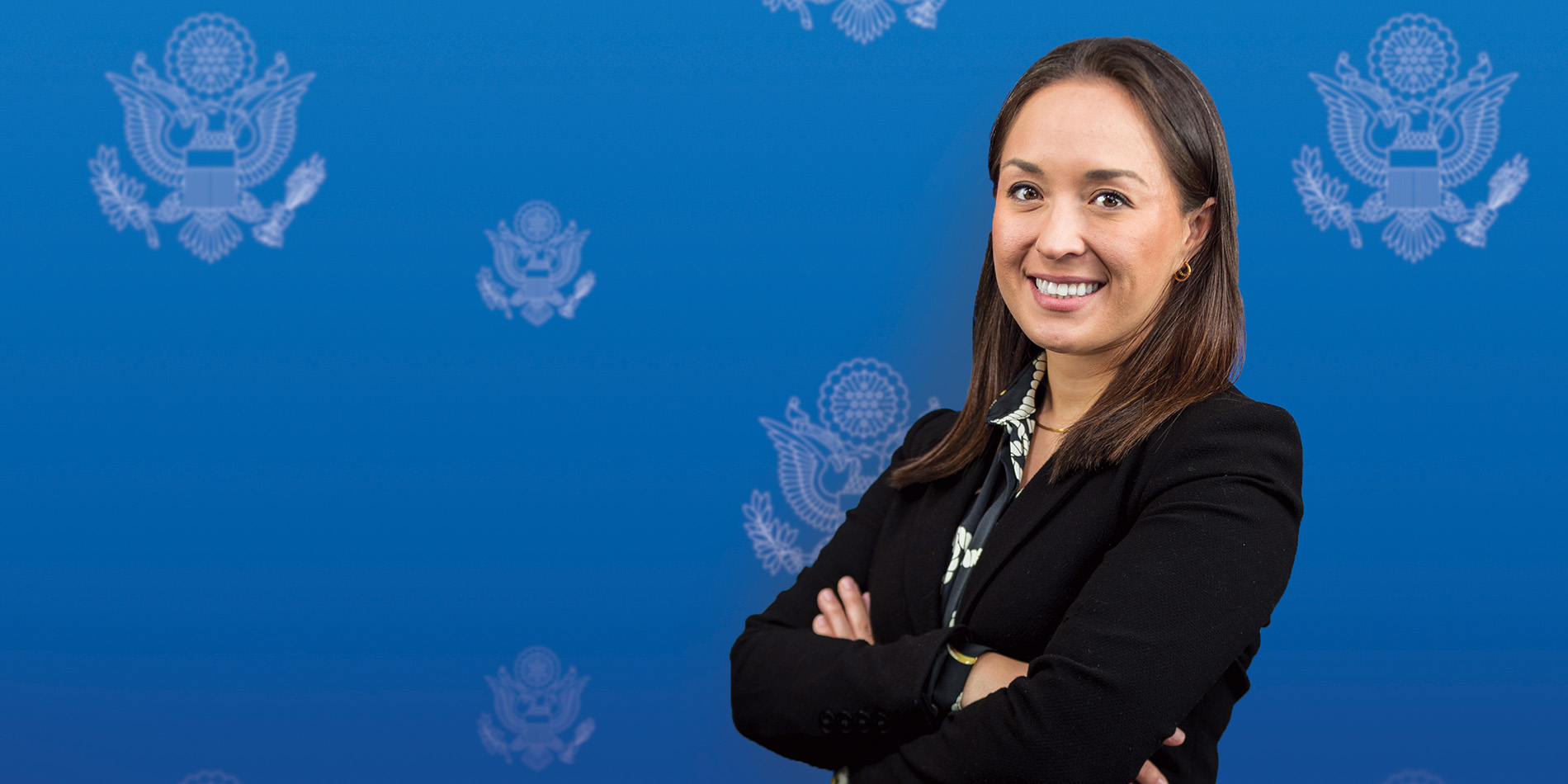As Told To: Sarah Whitten
As regional manager for finance and implementation for the US Trade and Development Agency, Whitten (BS09) went where she was needed most.
I was born in Tokyo, Japan. My father was originally stationed there as an engineer with the US Air Force. He met my mother and stayed. I attended high school at the American School in Japan before coming to Northwestern. Having a multi- racial upbringing sparked my interest and appreciation for different cultures.
I never imagined working in finance. As an undergrad, I wanted to blend development, business, and strategy. Everything changed thanks to my School of Education and Social Policy internship at Merrill Lynch.
The experience led to a job at an emerging markets bank in New York where I worked closely with multinational corporations on their funding needs.
After a few years, it hit me: I was facilitating transactions in emerging markets, yet I’d never truly experienced life in one. I began applying for roles in the bank’s emerging markets where English is widely spoken. South Africa, the most promising prospect, felt like the perfect next step in my journey.
Not understanding Africa, some people were skeptical. However, I was aware of South Africa’s robust banking system and saw it as a calculated risk worth taking. When you have a gut feel- ing about something, it’s important to pursue it.
Since then, I made the leap from the private to the public sector, joining a federal agency dedicated to supporting early stage infrastructure projects. Our agency provides support to infrastructure developers, and I focus on securing funding for our sub-Saharan Africa projects.
Our projects ranged from helping a Nigerian diaspora doctor who is expanding her telehealth business in under- served communities to supporting internet connectivity in South African townships. When implemented, our projects improved the lives of many.
After spending eleven years in South Africa, it all felt quite familiar. Even relatively challenging conditions, such as rolling electricity blackouts, are things one learns to live with, and I put in place the necessary precautions, the same way the locals do. The positives about the country—its friendly people, 11 official languages, multiculturalism, and braais, or barbeques—often do not make it into mainstream media.
It is best to be your authentic self in the workplace. Being in a male-dominated field, I attempted earlier in my career to stay current on which sports team was playing a match. But it’s difficult to keep this up if it is not genuine. Don’t be shy about your interests or hobbies; your colleagues might have something to learn from you.
Every step along the way shaped my journey. Infrastructure can profoundly improve people’s lives. By using trade and investment principles, it is possible to grow economic prosperity and build top- notch, sustainable infrastructure.
Life update: Since our interview, Whitten has relocated to Washington D.C. where she started a new role as senior vice president for the China Transformational Exports portfolio at U.S. EXIM.
By Vikki Ortiz
